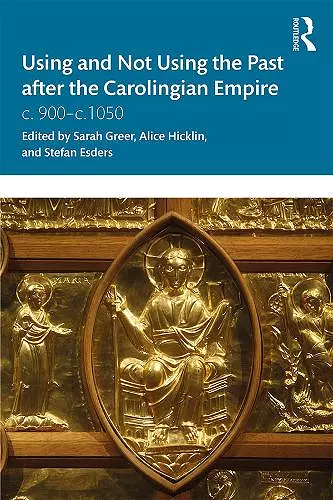Using and Not Using the Past after the Carolingian Empire
c. 900–c.1050
Stefan Esders editor Sarah Greer editor Alice Hicklin editor
Format:Paperback
Publisher:Taylor & Francis Ltd
Published:28th Oct '19
Should be back in stock very soon
This paperback is available in another edition too:
- Hardback£145.00(9780367002510)

Using and Not Using the Past after the Carolingian Empire offers a new take on European history from c.900 to c.1050, examining the ‘post-Carolingian’ period in its own right and presenting it as a time of creative experimentation with new forms of authority and legitimacy.
In the late eighth century, the Frankish king Charlemagne put together a new empire. Less than a century later, that empire had collapsed. The story of Europe following the end of the Carolingian empire has often been presented as a tragedy: a time of turbulence and disintegration, out of which the new, recognisably medieval kingdoms of Europe emerged. This collection offers a different perspective. Taking a transnational approach, the authors contemplate the new social and political order that emerged in tenth- and eleventh-century Europe and examine how those shaping this new order saw themselves in relation to the past. Each chapter explores how the past was used creatively by actors in the regions of the former Carolingian Empire to search for political, legal and social legitimacy in a turbulent new political order.
Advancing the debates on the uses of the past in the early Middle Ages and prompting reconsideration of the narratives that have traditionally dominated modern writing on this period, Using and Not Using the Past after the Carolingian Empire is ideal for students and scholars of tenth- and eleventh-century European history.
Many of the contributors present unique approaches to their topics; some bring little-known texts to the light; some force a reassessment of well-known sources. What this book does do, and does well, is demonstrate the necessity of reconsidering the traditional historiography of the post-Carolingian world, while providing a multifaceted view of the many different approaches and methodologies that can be used to explore it.
Laura Wangerin, Seton Hall University, Early Medieval Europe 2022 30 (4)
ISBN: 9780367002527
Dimensions: unknown
Weight: 490g
308 pages